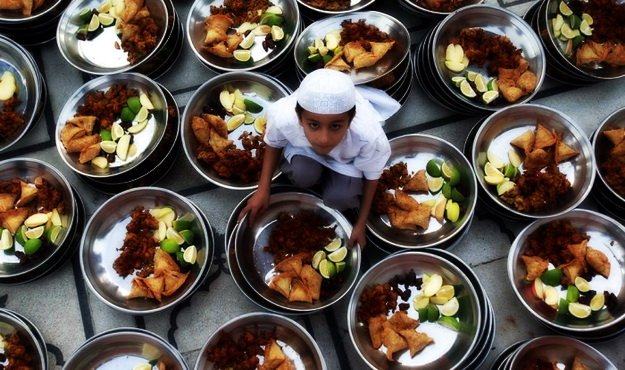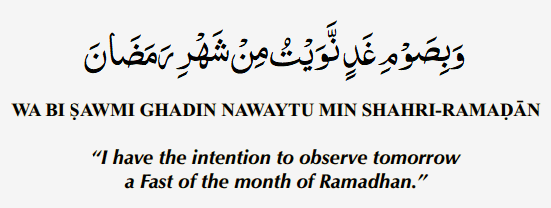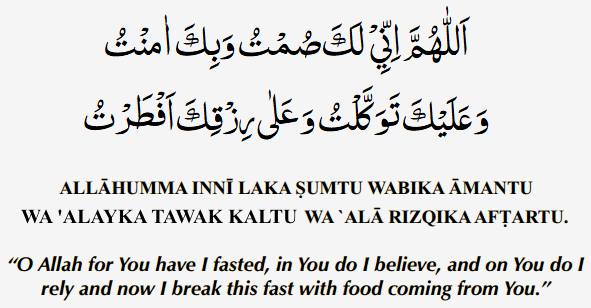Fasting - Saum - Rules of Fasting
Ramadan Fasting Rules - Ramadan Fasting 2022 - Do Don'ts during Ramadan fasting - Purpose of Ramadan fasting - Importance of fasting in Islam
Fasting - Saum - Rules of Fasting - Benefits of Fasting
Fasting during Ramadan means abstinence from all food or drink, including water and chewing gum, from dawn to sunset. It is recommended that before sunrise, Muslims eat a pre-fast meal known as suhur. This meal often resembles breakfast, but in some cultures, it may include more dinner-like foods.
- Fasting in the month of Ramadhan is one of the five pillars of Islam.
- Fasting in the month of Ramadhan is FARDH upon every Muslim, male and female, who is sane and mature.
- Almighty Allah ﷻhas promised great reward for those that fast, whilst severe punishment for those that do NOT fast in the month of Ramadhan.
- Fasting has many physical, moral and social benefits. However, Allah ﷻ has made fasting compulsory so that we become pious, Allah ﷻ fearing and Allah ﷻ conscious.
- Fasting in ISLAM means to stay away from EATING, DRINKING and COHABITATION (sex) from Subhus Sadiq (true dawn) to sunset with a Niyyah (intention) of Sawm (fasting).

THE NIYYAH (INTENTION)
- The Niyyah of fasting is NECESSARY. If a person stays away from all those things that invalidate one’s fast without a Niyyah, the fast will NOT be valid.
- It is unnecessary to express the Niyyah verbally as Niyyah means to intend. Thus, the intention at heart will suffice. However, it is better to say the Niyyah verbally also.
- The time for Niyyah lasts upto midday for Fardh Mu’ayyan, Wajib Mu’ayyan, Sunnah or Mustahab fasts. The hours of a day are from Subh Sadiq to sunset.
- The Niyyah for Fardh Ghair Mu’ayyan and Wajib Ghair Mu’ayyan should be made before Subh Sadiq.
SEHRI
It is Masnun (Sunnah) to partake of Sehri during the last portion of the night. It is a means of attaining great blessings and Thawab. The Sunnah will be achieved if one experiences Sehri anytime after midnight. But it is better and desirable to partake of Sehri in the last portion of the night. If the Mu’adhdhin has called out the Adhan before its time, it will not be prohibited to participate in Sehri till just before Subh Sadiq appears. It will suffice if one intends to fast in one’s mind after the Suhur. Delaying Suhur to such an extent that there is fear of the appearance of Sehri Sadiq should be avoided. To partake of Sehri at its correct time and then spend time chewing or smoking till the last minute should be avoided.

IFTAAR
It is Sunnah to make Iftaar (to break one’s fast) immediately after sunset. One should not delay in Iftaar. It is harmful if one partakes in the Iftaar meal for so long that he misses his Maghrib salaah. It is better to break the fast in the Masjid so that the Maghrib salaah is not ignored. To perform Maghrib salaah at home so one can indulge in the provisions of Iftaar while missing the blessings of salaah with Jama’ah is a shameful act.

TYPES OF FASTS
There are Eight types of Fasts . They are as follows:
– FARDH MU-‘AYYAN: Fasting for the whole month of Ramadhan once a year.
– FARDH GHAIR MU-‘AYYAN: The duty upon one to keep QADHA of a fast missed in the month of Ramadhan with or without a valid reason.
– WAJIB MU-‘AYYAN: To vow to keep a fast on a specific day or date for the pleasure of Allah ﷻ, upon the fulfilment of some wish or desire
– WAJIB GHAIR MU-‘AYYAN: To vow or pledge to keep a fast without fixing any day or date, upon the fulfilment of a wish. Those fasts which are kept for breaking one’s Qasm (oath) also fall under this category.
– SUNNAH: Those fasts which Rasulullah ﷺ kept and encouraged others to keep, e.g., fasting on the 9th and 10th of Muharram, and the 9th of Dhil Hijjah, etc.
– MUSTAHAB: All fasts besides Fardh, wajib and Sunnah are Mustahab, eg., fasting on Mondays and Thursdays.
– MAKRUH: Fasting ONLY on the 9th or 10th of Muharram or Fasting ONLY on Saturdays.
– HARAM: It is Haram to fast on FIVE days during the year. They are Eidul Fitr, Eidul Adhaa and three days after Eidul Adha.
THINGS MAKRUH WHILE FASTING
- To chew rubber, plastic or other inedible items.
- To taste any article of food or drink and spit it out. If a woman has a very ill-tempered husband, it is permissible for her to taste the food, provided it does not go down her throat.
- To collect one’s saliva in the mouth and then swallow it, trying to quench thirst.
- To delay a bath that has become Fardh knowingly until after Subh Sadiq.
- Use paste or toothpowder to clean one’s teeth. It is permitted to use a miswaak of any fresh branch or root.
- To complain of hunger and thirst.
- To take excessive water up the nostrils when cleaning the nose.
- To gargle more than necessary.
- To quarrel, argue, and use filthy or indecent words.
- To backbite, lie and swear etc., are sinful acts even when one is not fasting. Therefore they become more serious when fasting.
THINGS THAT BREAK ONE’S FAST
Things that break one’s fast are of two kinds. Some only make Qadha necessary, whilst others make both Qadha and Kaffarah compulsory.
(a) QADHA: To keep one fast in place of one that breaks, or is broken unintentionally.
(b) KAFARAH: To keep SIXTY fasts continuously . This is atonement for fasts broken intentionally.
However, if a person is unable to keep these 60 fasts, for some valid reason, eg., continuous sickness, then one has the option to choose from the following four:
- Feed sixty poor people to their fill for two meals, or
- Feed one poor person two meals a day, for sixty days; or
- Give 60 poor persons 3.5 lbs. (approx. 1.6 kg.) of wheat or its value in cash or food;
- Give to one poor person not less than 3.5 lbs,. of wheat, rice or food grains, etc. or its value in cash for sixty days. (It cannot be given at once)
THINGS THAT INVALIDATE ONE’S FAST BUT MAKE ONLY QADHA WAJIB
- A fasting person swallows anything put by force into the mouth.
- Water going down the throat whilst gargling (whilst being conscious of one’s fast).
- To vomit a mouthful intentionally or to return vomit down the throat.
- It is intentionally swallowing a pebble, piece of paper or any item not used as food or medicine.
- Swallowing something edible, equal to or more significant than a grain of gram stuck between the teeth. However, if it is first taken out of the mouth and swallowed, it will break the fast, whether smaller or more prominent than the grain size.
- Putting oil into the ear.
- Inhaling snuff into the nostrils.
- Swallowing the blood from the gums if the colour of the blood is more than the saliva with which it is mixed.
- To eat and drink, forgetting that one is fasting and thinking that the fast is broken, to eat and drink again.
- To eat and drink after Subha Sadiq or to break the fast before sunset due to a cloudy sky or a faulty watch, etc., and then realising one’s fault.
THINGS THAT DO NOT BREAK THE FAST
1) If anyone forgets that he is fasting and eats or drinks, he should complete his fast, for it is only Allah who has fed him and given him a drink.
2) Unintentional vomiting.
3) Swallowing things which are not possible to avoid, such as one’s saliva, street dust, smoke, etc.
4) Brushing the teeth.
5) Injection or intra-venous, which is solely medical and not nutritional.
PEOPLE EXEMPTED FROM FASTING
Fasting is mandatory for every Muslim who is sane, adult, able and resident. The following exemptions apply:
1) The insane;
2) Children who are not adolescents yet;
3) The elderly and chronically ill for whom fasting is unreasonably strenuous; Such persons are required to feed at least one poor person every day in Ramadan for which they have missed fasting.
4) Pregnant women and nursing may postpone the fasting to a later time;
5) The ill and the travellers can also defer their fasting.
FIDYAH (COMPENSATION) FOR FAST
When someone cannot fast in Ramadan (due to ill health, travelling or menstruation for example) they should make up the missed fasts when they are able to do so. However, if they will not be able to make up missed fasts (due to old age or chronic illness that is unlikely to improve) they should pay fidya for someone else to be fed.
There is no time limit for making up missed fasts in the Hanafi school so fidya is only valid if a person has no hope of being able to make up the missed fasts in their lifetime. This means that the following do not qualify to pay fidya:
– One who misses out on a few days of fasting due to a temporary illness
– One who accidentally or deliberately broke their fast
– One who is unable to fast this year due to surgery or the like, but is expected to be able to fast next year
Who is eligible for Fidya?
You are eligible to pay fidya if you have missed or are exempt from fasting due to pregnancy, illness, old age or any other reason which prevents you from making the fasts up later.
Who can receive Fidyah?
Fidyah is to be given only to the poor and needy, not to everyone. Scholars consider Fidyah to be like zakat, therefore those entitled to receive Fidyah are regarded as being among those who are entitled to zakat.
